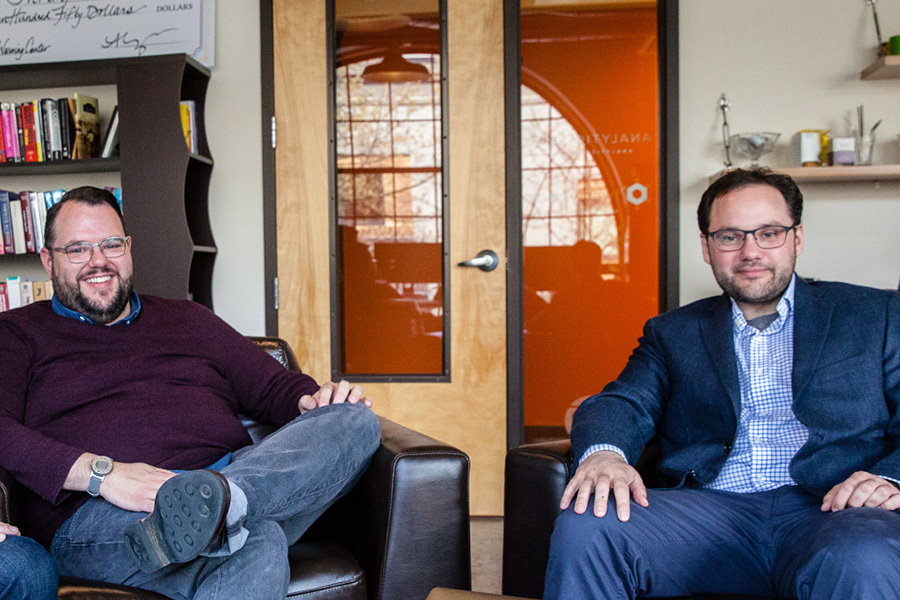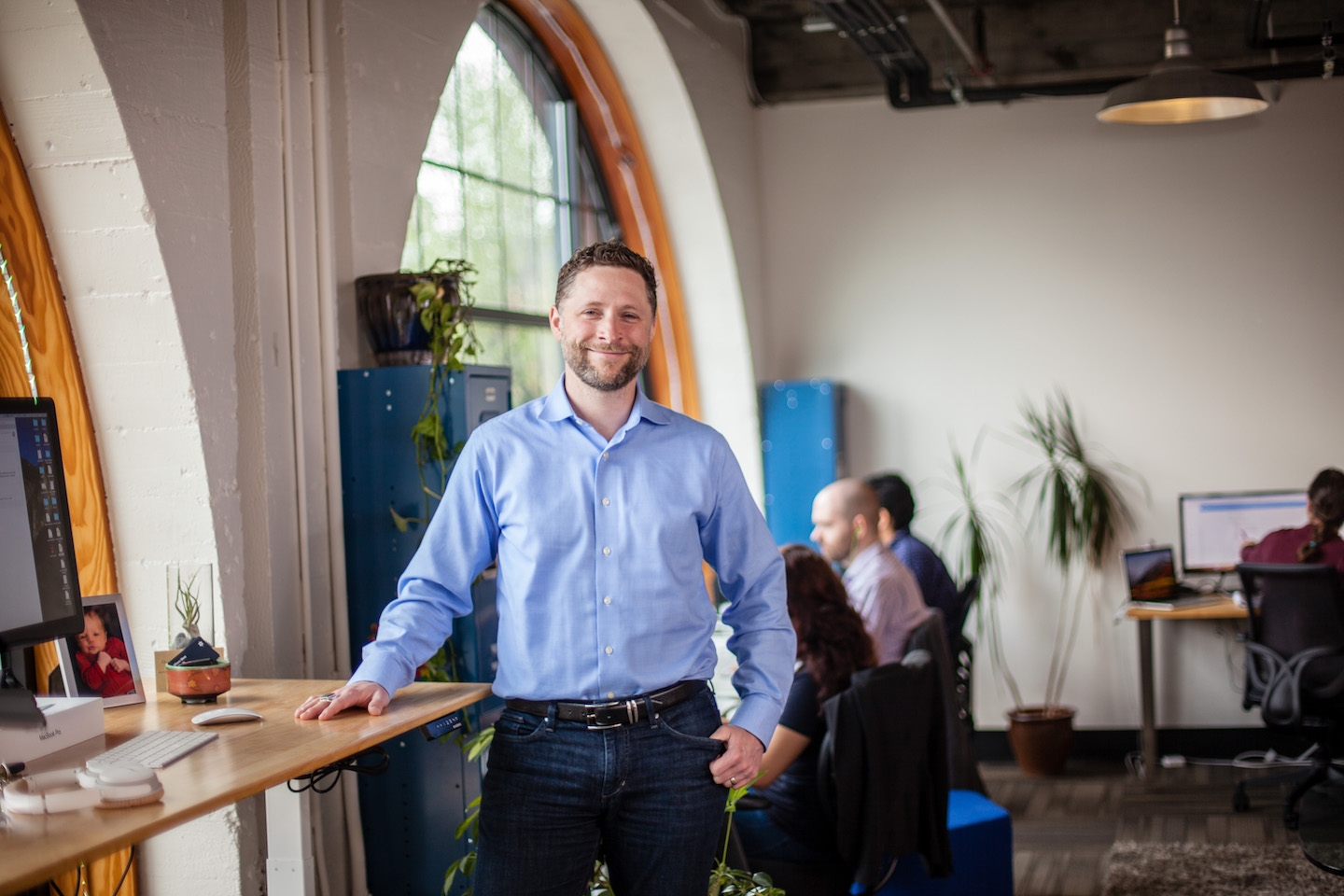How Eugene tech firm Twenty Ideas brings ideas to reality.
During the Age of Enlightenment, writers, scientists, inventors, and businessmen would meet in coffeeshops to discuss ideas. Being a space for insights to flourish, the coffeeshop became a hotbed of innovation. It was privy to a concept which has only recently become widespread: breakthroughs rarely happen in isolation.
Twenty Ideas, a software and product development company in Eugene, OR, is the metaphorical coffee house. Through a wide array of technological capabilities—data & machine learning, UX/UI research and design, strategic planning, mobile app & web development—it partners with companies to transform an idea into a functioning product. Or, as CEO Mike Biglan says, “We bring ideas to life”.
“It’s not just someone saying, ‘Hey, we want you to build this’,” says Biglan, who founded Twenty Ideas in 2014. “It’s getting to the desire of what the company wants and working closely with them to see it evolve.” Twenty Ideas design and development team members at work.
Twenty Ideas design and development team members at work.
The name, Twenty Ideas, pays homage to both their brainstorming process as well as a concept in innovation known as “the adjacent possible”. Coined by biologist Stuart Kauffman, the adjacent possible states that systems become more complex by making incremental and closely-related changes. In technological context: an idea builds on itself iteratively by combining with other ideas.
For Twenty Ideas, this involves collecting a group of ideas—twenty, perhaps—and finding one strong enough to build upon. “To get to a healthy actionable idea, it takes many little ones,” says Biglan. “It’s all about asking the right questions at the right time.” As the project progresses, this central idea morphs into more complex possibilities.
The number “20” holds further significance: it’s the upper bound of moves needed to solve a Rubik’s Cube from any position. In the execution phase, this ethos ensures the team can take feedback and make adjustments in the most strategic and efficient way possible.
Avant Assessment, a leader in online language assessment and learning, has been a client of Twenty Ideas for over three years. Avant needed a way to grade writing autonomously. By using Artificial Intelligence, Twenty Ideas and its partner company Analytic Spot created an algorithm that could grade writing assignments with better statistical significance than humans. In a separate project, that algorithm was then transformed into an entirely new product for Avant called “LearningWrite”: an online ecosystem that automates task assignments and grading, saving significant time for teachers. Design Director Josh Clark and Engineering Director Brett Ansite.
Design Director Josh Clark and Engineering Director Brett Ansite.
“Mike and his team do as much ideation as possible, but then they also execute quickly,” says David Bong, CEO of Avant Assessment. “At the end of the day, the outcome is so much better than anything we’ve had in technology before.”
Ideas are often one missing piece from becoming something bigger—a bit of information or maybe a certain platform or tool. Once this component falls into place, it sparks the “eureka moment”, the intersection of timing, resources, and ingenuity. The idea is fully incubated and ready for development.
Twenty Ideas exists to be that missing piece—the one that carries a notion and works with organizations to turn it into a breakthrough.
Twenty Ideas is based in downtown Eugene. Learn more by visiting the company website, twentyideas.com.
Brand stories are paid content articles that allow Oregon Business advertisers to share news about their organizations and engage with readers on business and public policy issues. The stories are produced in house by the Oregon Business marketing department. For more information, contact associate publisher Courtney Kutzman.






